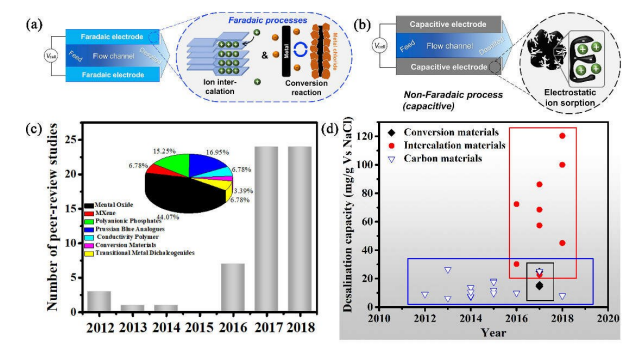ABSTRACT:Capacitive deionization (CDI) is a novel technology for desalinating feed water because of its low cost and easy regeneration and in spite of its low desalination capacity and charge efficiency. One of the most promising methods to address these issues is replacing traditional carbon materials with materials that can store ions via faradaic reactions (here known as faradaic electrode materials). Faradaic electrode materials have three main advantages over carbon materials: high capacity, low energy loss, and selective separation; thus, faradaic materials have attracted the interest of many scholars. However, there has not been a comprehensive review of the advances in faradaic materials in desalination and ion separation. In this paper, we present an overview of three kinds of architectures of faradaic deionization cells and analyze their advantages and disadvantages. A variety of faradaic materials are introduced in terms of their structures, merits, and drawbacks, and methods to address their deficiencies are discussed. The performance of faradaic electrode materials in desalination, the removal of heavy metals and ion separation is also presented. The issues related to performance are identified, and ways to address them are proposed.
